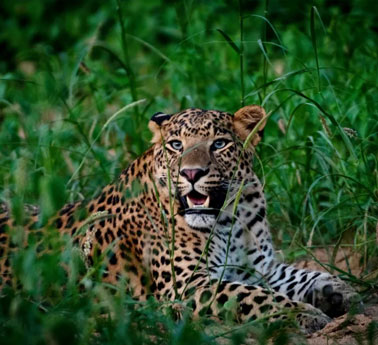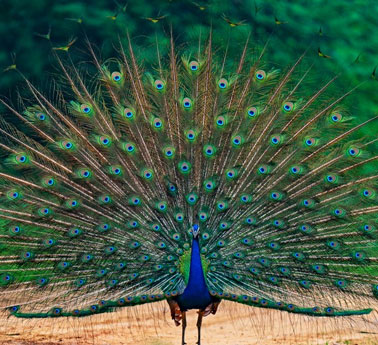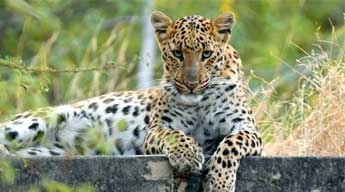Fauna in jhalana leopard reserve
Jhalana Leopard Reserve, located in Jaipur, Rajasthan, India, is primarily known for its population of leopards. The reserve is home to a diverse range of flora and fauna, and while leopards are the highlight, there are other species of wildlife that can be spotted in the area. Here are some of the fauna found in Jhalana Leopard Reserve:
Leopard (Panthera pardus) : The reserve is famous for its leopard population, and it provides a good opportunity for visitors to observe these elusive big cats in their natural habitat.
Indian Blue Bull (Nilgai) : Nilgai, the largest antelope species native to India, can also be found in the Jhalana Leopard Reserve.


Chital (Spotted Deer) : Spotted deer are common in many Indian wildlife reserves, and Jhalana is no exception. These deer are often seen grazing in the grasslands.
Sambar Deer : Another species of deer found in the reserve, the sambar deer is one of the largest deer species in Asia.
Wild Boar : These omnivores are frequently found in the forested and grassy areas of the reserve.
Indian Striped Hyena : The Indian striped hyena is a scavenger that inhabits a variety of ecosystems, including dry grasslands and scrub forests.
Desert Fox : Also known as the white-footed fox, this small carnivore is adapted to arid environments and is sometimes spotted in the reserve.
Indian Porcupine : Nocturnal and primarily herbivorous, Indian porcupines are among the rodents that inhabit the Jhalana Leopard Reserve.
Hanuman Langur : This species of langur, a type of monkey, can be found in the reserve's forested areas.
Various Birds : Jhalana is also home to a variety of bird species, including peafowl, Indian Pitta, owls, and many others.
Things to remember
1. Responsible wildlife tourism is key. Respect the animals and their habitat.
2. Avoid littering and noise pollution.
3. Use authorized safaris and guides to ensure a safe and ethical experience.

